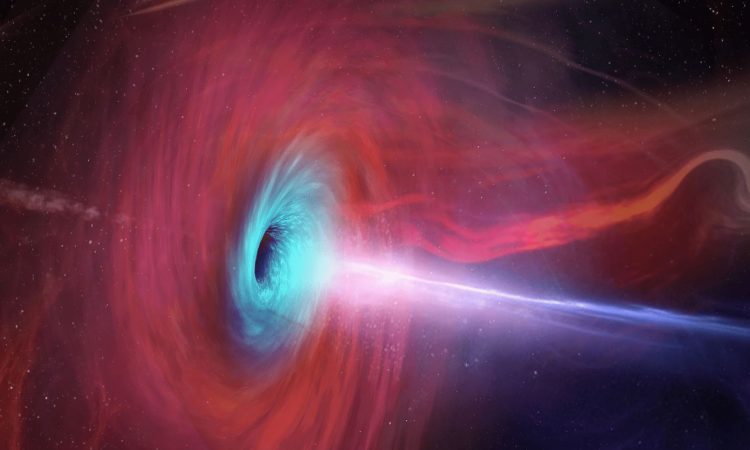
If there are microscopic black holes born a fraction of a second after the Big Bang, as some researchers suspect, then at least one could fly through the Solar System every decade, generating tiny gravitational distortions that scientists can detect, reveals a new study.
These findings suggest that if astronomers can detect and confirm the existence of such gravitational perturbations, they may be able to solve the mystery behind the nature of dark matter, the unseen material that many researchers suspect makes up about five-sixths of all the matter in the cosmos.
Many researchers suggest that dark matter may be composed of unknown particles, but no experiments so far have discovered new particles that could be dark matter. As such, one alternative that scientists are exploring to explain dark matter is the so-called , which have existed since the beginning of time.
Previous research suggests that about 86% of the matter in the Universe is composed of an invisible substance called dark matter.
Scientists infer the existence of dark matter from its gravitational effects on everyday matter and light, but it is currently unknown what it might be made of.
The black hole would generate small gravitational distortions in the Solar System
it comes from their immense gravitational pull, which is so strong that even light cannot escape. Over the decades, astronomers have detected many black holes, from stellar-mass black holes, typically five to 10 times the mass of the Sun, to supermassive black holes millions to billions of solar masses in size. Instead, the new study looked at primordial black holes, which previous research suggests might only have the mass of a typical asteroid.
“The black holes we consider in the paper are at least 10 billion times lighter than the sun and barely larger in size than a hydrogen atom,” study co-author Sarah Geller told Space.com , a theoretical physicist at the University of California, Santa Cruz.
Black holes occur when an object is so dense that it collapses under the force of its own gravity. Previous work suggests that shortly after the Big Bang, before the Universe expanded greatly, random fluctuations in the density of matter in the newborn cosmos caused some clumps to become dense enough to form black holes.
Previous research has suggested that primordial black holes that have survived to this day may make up most of the dark matter. If a black hole doesn’t reveal its existence—for example, by tearing apart a star—it can go undetected in the mist of space.
The new study examined how often primordial black holes might fly through the Solar System and whether they might produce effects that scientists could detect on visible objects.
How do black holes appear?
Initially, the researchers “thought about what might happen if it were to break through the Earth’s crust, or pass through our atmosphere, or leave a crater on the moon,” Geller said. “We even wondered what would happen if one of these tiny black holes hit a human.”
Instead, “we needed a system big enough for black holes to pass through on a regular basis, but precisely measured enough to see any effect,” Geller said.
Scientists have come to focus on the primordial black holes that fly by the inner planets of the Solar System – Mercury, Venus, Earth and Mars.
They found that if primordial black holes exist, they could be abundant enough for at least one of them to fly past the inner worlds once a decade. They added that it is possible that more flybys have already taken place as technologies capable of detecting such disturbances have come into operation, writes .
The scientists also stated that their results are based on relatively simple computer simulations, which do not have the precision necessary to analyze real data on the orbits of the inner Solar System.

